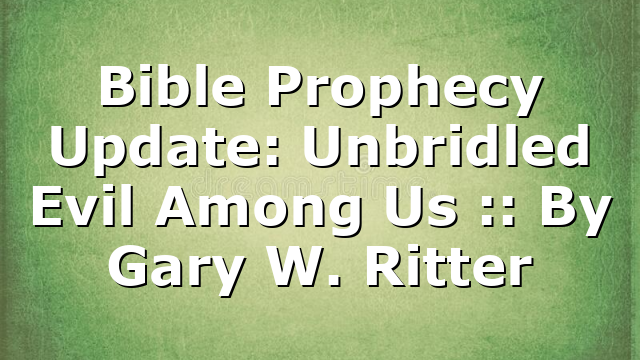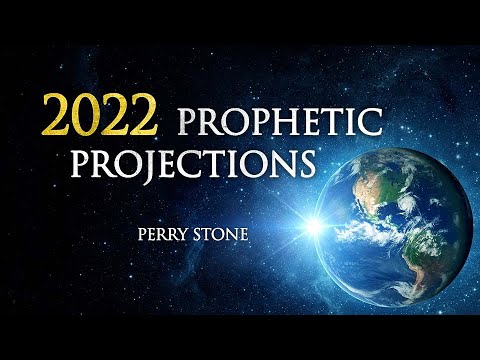12 Questions for Deniers of a Kingdom for Israel :: By Jonathan Brentner
Was the re-establishment of Israel as a nation in 1948 a fluke of history or the result of God’s miraculous working on behalf of His people? Although I and many others see God’s supernatural hand in it, most church leaders today claim Israel’s current existence has nothing to do with Bible prophecy.
They teach that God rejected the people of Israel after their actions led to Jesus’ crucifixion, and as a result, He transferred His promises of a glorious future kingdom from Israel to the church, albeit spiritually. We refer to this belief as “replacement theology” since its proponents say that the church has replaced Israel in God’s prophetic scheme.
Does this really matter? Yes, it’s highly important because those immersed in this teaching . . .
- Fail to recognize the myriad of signs pointing to the nearness of the seven-year Tribulation and thus to Jesus’ soon appearing.
- Acknowledge the rampant evil of our day but do not see the satanic nature of the deadly battle that rages around us.
- Remain blind to the spirit of the antichrist that is now openly and actively setting the stage for his coming kingdom.
This is not a trivial matter; replacement theology not only strikes at the validity of future Bible prophecy, but it also mutes the voice of the church at a time when pastors need to warn their flock about what’s coming and comfort them with the “blessed hope” of the Gospel.
My prayer is that the following dozen questions and my brief answers to them will encourage you. Our joyous hope in Jesus’ appearing to take us to heaven before the seven-year Tribulation has its roots deep in the promises God made to Israel long, long ago.
- Has God Reneged on His Land Covenant with the Patriarchs?
When the Lord made His covenant of the Land with Abraham in Genesis 15:12-21, He made its fulfillment totally dependent on Himself rather than on the behavior of its recipients. Furthermore, Israel has never occupied all of the Land He promised to the Patriarchs.
In Psalm 105:7-11, God specifies that His covenant of the Land is “an everlasting covenant.” How can one say that this “everlasting covenant” is now invalid without altering the meaning of the word “everlasting”?
God’s covenant of the Land with Israel remains in effect today. It’s impossible for Him to renege on the solemn oath He swore to Abraham in Genesis 15:12-21. It is, after all, His eternal promise.
- When did God Cleanse Israel of all Her Sins and Put His Holy Spirit in His People?
In Ezekiel 34:22-37, God promises, among many other things, to gather the Israelites “from the nations,” cleanse all their sins, and put His “Spirit within them.” The fulfillment of these verses couldn’t have happened before Jesus’ ascension back to Heaven (John 16:7) because God couldn’t give the Holy Spirit in such a way before that time.
One must greatly distort the meaning of the prophet’s many physical promises to Israel in this passage to make them even remotely apply to the church. Both the spiritual and tangible pledges refer to a future restored Israel.
The question remains: When did the Lord fulfill the promises to Israel that He recorded in Ezekiel 34:22-37 after the Lord’s ascension? He hasn’t done so but will do so in the future.
- When Did the Israelites Repent, as Recorded in Zechariah 12:10-13:1?
In Zechariah 12:10-13:1, the prophet records a time of great repentance for the people of Israel that occurs once they recognize that they crucified their Messiah. In this passage, the Lord goes out of his way to emphasize that this prophecy applies exclusively to the descendants of Jacob and no one else.
It’s as if God knew that someday people would take this as a reference to the church, and He needed to disallow such confusion by making sure we understand that this future awakening further applies to the “house of David” and to the inhabitants of Jerusalem.
These words surely await a future awakening of Israel, the one Paul refers to in Romans 11:25-36.
- When Did Jesus Rule Over the Nations from Jerusalem?
In Zechariah 14:9, we read these words:
“And the Lord shall be king over all the earth: in that day shall there be one Lord, and his name one.”
The context makes it abundantly clear that Jesus reigns over the nations of the world from Jerusalem. If we take the words of this prophecy in the way the prophet intended, the reign of Christ as described in Zechariah 14:9-21 has not yet happened. The words of this prophecy absolutely cannot apply to the church unless one subjects them to human wisdom in the form of allegory, the subjective symbolizing of the words.
Since all of Zechariah’s predictions regarding the first coming of Jesus happened precisely according to the words in the text, what’s the justification for applying symbolical meanings to specific words not yet fulfilled? There is none!
- When Did God “make an end of sins” and “bring in everlasting righteousness”?
In Daniel 9:24, we find this promise:
“Seventy weeks are determined upon thy people and upon thy holy city, to finish the transgression, and to make an end of sins, and to make reconciliation for iniquity, and to bring in everlasting righteousness, and to seal up the vision and prophecy, and to anoint the most Holy.”
This prophecy refers to Daniel’s “people,” the descendants of Jacob, and “the holy city,” which must be Jerusalem. The Messiah will accomplish the ending of sins and the bringing in of “everlasting righteousness” during the “seventy weeks” of years designated for Israel and Zion.
And since these words remain unfulfilled to this day, God must still have a purpose for both His “people” and “holy city.”
If one suggests that this prophecy somehow refers to the church, we must ask: Has God ever worked through the church to “make an end of sins” and “bring in everlasting righteousness?” Are these tasks the New Testament assigns to the church for now or in the future? The answer to both questions is an emphatic NO!
There must be a seventieth week of Daniel because the Lord has not yet accomplished all He promised to do in Daniel 9:24 during the seventy weeks of years.
- When Did the Seventieth Week of Daniel Occur?
If there is not a glorious restoration of a kingdom for Israel, that signifies that God gave up on His purposes for His people and city before completing the seventy weeks of Daniel 9:24-27. That scenario, of course, is impossible.
As I demonstrated in my post, The Biblical Necessity of a Third Jewish Temple, there must be a future seventieth week of Daniel because a key event in this week has not yet happened. The Bible says the Lord Himself, at His return to earth, will kill the one who desecrates the temple, which happens in the middle of the last week (see 2 Thessalonians 2:3-8). Has this happened? No!
Either Paul was mistaken about the defilement of the Jewish temple by the antichrist or the fulfillment of the Daniel 9:27 will happen in the future during what we call the seven-year Tribulation.
In other words, if there is no future time when the antichrist defiles a future Jewish temple and is subsequently killed at Jesus’ return to earth, we cannot trust Paul’s words in 2 Thessalonians 2.
Of course, the words of the apostle are inspired Bible prophecy; there must be a future seven-year period of time when God turns His focus back to the Jewish people.
- When Did Jesus Rule Over the Nations with a “Rod of Iron.”
If one believes that God has replaced Israel with the church, one must subject hundreds of verses in the Psalms to subjective symbolism. The Psalmists often speak of Jesus’ Second Coming and His reign over the nations of the earth.
Psalm 2 is the first such Messianic Psalm: verses 7-12 describe Christ’s inheritance of the nations from His Father. In verse 9, we read these descriptive words about the nature of His future reign:
“You shall break them with a rod of iron and dash them in pieces like a potter’s vessel.”
Does Jesus rule in such a way over the church? Absolutely not; the Apostle Peter refers to Him as our “chief Shepherd” (1 Peter 5:4). Jesus “nourishes and cherishes” His church (Ephesians 5:29); He does not rule with a “rod of iron” over His own body.
Can Psalm 2 refer to the eternal state? Again, that’s impossible because sin will not exist in this future realm (Revelation 21:4).
If the words of Scripture mean what they say, there must be a time between the church age and the eternal state when Jesus rules over the nations, just as the prophet Zechariah tells us (14:9-21). This rule must come from Jerusalem and include punishment for evil behavior.
- Did Gabriel Mislead Mary When He Told Her She Would be the Mother of the Messiah?
In Isaiah 9:7, the prophet says that someday the Messiah will sit upon the “throne of David.” We take verse 6 as literal when it says that Christ would enter the world as a “child.” Why not regard His kingdom rule on the “throne of David” in the same way? Many, however, do not.
I believe the words of Gabriel to Mary, as recorded in Luke 31-32, confirm the literalness of all the prophet’s words in Isaiah 9:6-7.
“And, behold, thou shalt conceive in thy womb, and bring forth a son, and shalt call his name Jesus. He shall be great, and shall be called the Son of the Highest: and the Lord God shall give unto him the throne of his father David:”
When Mary heard these words from the angel, was she thinking of a spiritual kingdom or a literal realm? Was there any precedent for her to regard her Son’s future rule as anything but that of a physical reign on David’s throne? If so, what was it?
Since God knew her understanding would be that of a tangible kingdom on earth, why would Gabriel repeat the entire promise of Isaiah 9:6-7 if Mary was not to take it at face value?
Even the disciples, on the day of Jesus’ ascension into heaven, expected a future physical kingdom for Israel. How can we assume Mary regarded the promise of Gabriel as anything but that? And if so, its fulfillment must happen exactly as the Lord, through Gabriel, promised Mary, or else we create a tangled web of epic proportions.
- When Did God Break the fixed Order of Nature?
After prophesying about the new covenant that God would make with “the house of Israel and the house of Judah” (Jeremiah 31:31-34), Jeremiah records the Lord’s unalterable pledge to Israel’s continuance as a nation in His sight in 31:35-.36:
“Thus saith the Lord, which giveth the sun for a light by day, and the ordinances of the moon and of the stars for a light by night, which divideth the sea when the waves thereof roar; The Lord of hosts is his name: If those ordinances depart from before me, saith the Lord, then the seed of Israel also shall cease from being a nation before me for ever.”
The continuing fixed order of nature confirms that the Lord still has a purpose for the nation of Israel. And to counter any “spiritual” application of His words, God cites physical places within the city of Jerusalem that will be rebuilt someday.
He repeats the identical pledge in regard to His covenant with David in Jeremiah 33:14-22 and then again in 33:23-26 in response to Jews who at the time said that God had rejected Israel.
In these passages, we have God’s emphatic confirmation of His covenants with Israel and David, which He pledges will remain intact as long as the fixed order of nature continues.
- When Did David Rule over Israel After the Babylonian Captivity?
During the time that the people of Judah were in captivity in Babylon, the prophet Ezekiel recorded the Lord’s amazing promises for His people in Ezekiel 37:24-28. Two aspects from these verses stand out in my mind:
- David will be king over Israel in the future.
- The Lord will establish an everlasting “covenant of peace” with Israel at the time of David’s reign over Israel. (See also Isaiah 54:10 for another reference to this still future covenant.)
I believe that during the Millennium, a resurrected David will rule with Jesus in Jerusalem with duties that pertain to Israel. Others regard this prophecy as a reference to Christ, David’s descendant. Either way, the promise remains unfulfilled to this day.
Ezekiel 37:15-28 specifies a restoration for Israel that has not even remotely happened since the time the prophet wrote these words. All attempts to apply these verses to the church fall woefully short.
- When Did the “Great Tribulation” Occur?
In Matthew 24:21, Jesus said that a period of “great tribulation” will occur just before His Second Coming. During this time, the antichrist will persecute the Jewish people after desecrating the Jewish temple (see Matthew 24:15-22; 2 Thessalonians 2:3-8).
Matthew 24 presents a dilemma for those who deny the restoration of a glorious kingdom for Israel. If Jesus’ words point to a still future time, it confirms that the seventieth week of Daniel 9:24-27 awaits a future fulfillment.
Abundant discrepancies and contradictions arise when teachers assume that Matthew 24 refers to the entire time from Jesus’ ascension to His return to earth. Those who say that all of Matthew 24 represents past history, as many claim, do irreparable harm to the words of the text and to many other Scriptures as well.
The “great tribulation” to which Jesus refers awaits a future fulfillment, as it leads directly to His Second coming. All the words of Matthew 24:3-31 were future when Jesus spoke them, but today the Lord is graciously giving the world the precursors of the signs in this text as a warning that its words, as well as the judgments of the book of Revelation, will most certainly happen in the not-too-distant future.
- Why did the Disciples Still Expect a Future Restoration of a Kingdom for Israel?
In Acts 1:6, the disciples asked Jesus this question, “Lord, will you at this time restore the kingdom to Israel?”
I remember a pastor roaring with laughter when I told him that the disciples’ continuing expectation of a restored kingdom for Israel meant this glorious realm was still future. I listened as another preacher changed the wording of the disciples’ question in order to support his belief in replacement theology.
Almost four years ago, I wrote a post titled, The Expectation of the Disciples. In it, I demonstrated why the disciples’ question and Jesus’ response to it verifies a still future restored kingdom of Israel.
Summation
Only the expectation of a still future glorious kingdom satisfactorily answers these 12 questions.
All the errant views regarding the end times begin with the assumption that God has replaced Israel with the church. I know that many who hold fast to replacement theology also maintain the purity of the Gospel, which I applaud.
However, I also know that those who symbolize Bible prophecy regarding the restoration of Israel open the door for the same treatment of other passages. The churches most likely to compromise with the evils of our culture are those that have long dismissed Jesus’ rule over Israel during the Millennium. This comes as the result of applying symbolic meanings to other clear passages of Scripture.
Tim Moore, in a recent Harbingers Daily article, wrote:
Why did God foretell so much about Jesus’ First Advent and Second Coming? Clearly, He wanted those “with eyes to see” to have discernment and to keep their hearts attuned to the Messiah.[i]
The Lord Jesus expected the Jewish leaders of His day to recognize the signs of the first advent because of the many prophecies in Scripture (Matthew 16:1-4; Luke 12:54-56). How much more is it incumbent upon us today to do the same with the end times?
—
My book, The Triumph of the Redeemed-An eternal Perspective that Calms Our Fears in Perilous Times, is available on Amazon. In it, I examine both church history and Scripture in defending the restoration of a glorious kingdom for Israel and the Pretribulational Rapture.
Note: Please consider signing up for my newsletter on the home page of my website at https://www.jonathanbrentner.com/. Thanks!
[i] Tim Moore, God Has Given Us Enough Signs To Offer Insight — If We Have Eyes To See, January 10, 2023 @ https://harbingersdaily.com/god-has-clearly-chosen-to-give-us-enough-signs-to-offer-insight-if-we-have-eyes-to-see/
The post 12 Questions for Deniers of a Kingdom for Israel :: By Jonathan Brentner appeared first on Rapture Ready.









Leave a Reply